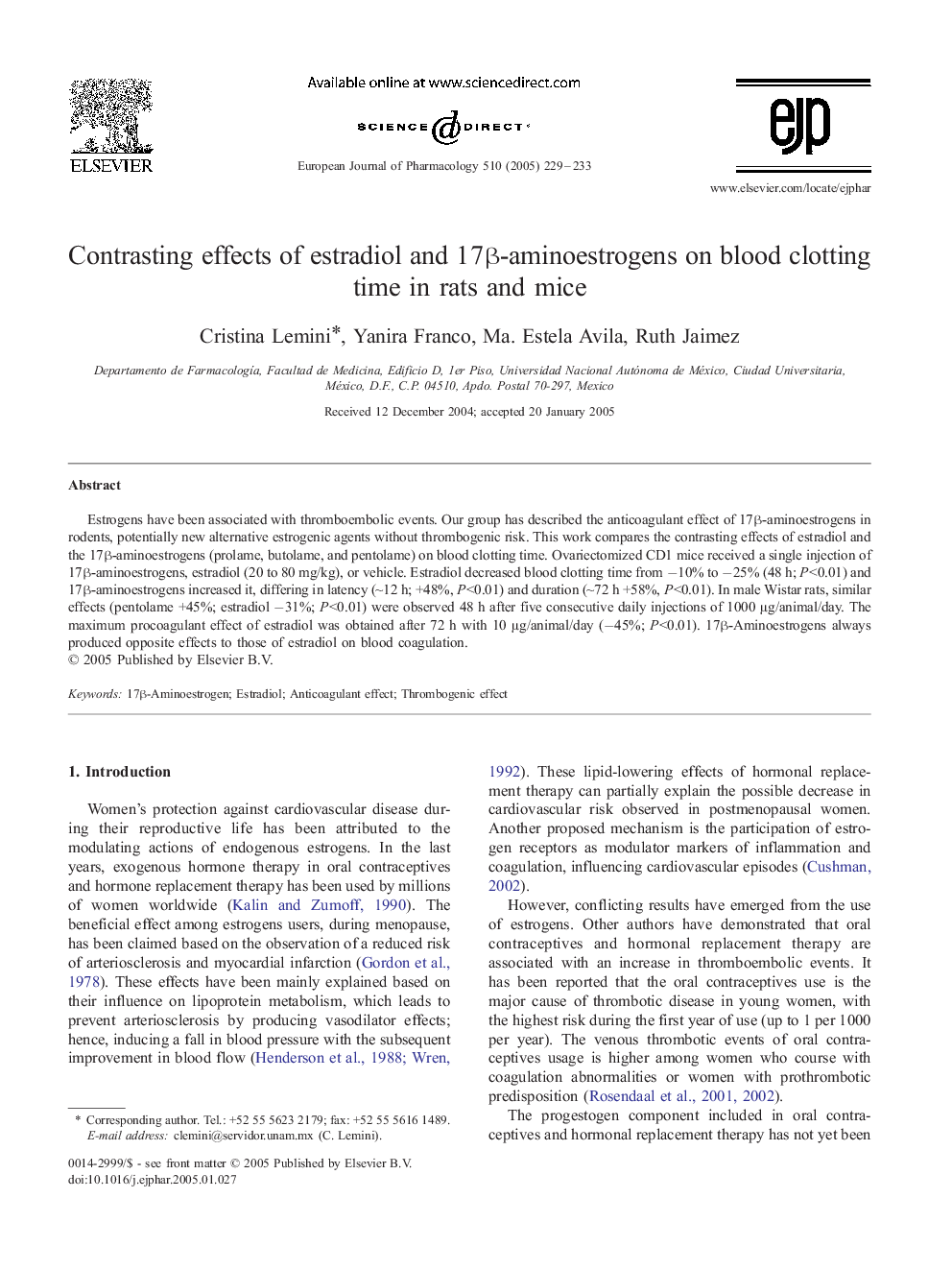| Article ID | Journal | Published Year | Pages | File Type |
|---|---|---|---|---|
| 9921458 | European Journal of Pharmacology | 2005 | 5 Pages |
Abstract
Estrogens have been associated with thromboembolic events. Our group has described the anticoagulant effect of 17β-aminoestrogens in rodents, potentially new alternative estrogenic agents without thrombogenic risk. This work compares the contrasting effects of estradiol and the 17β-aminoestrogens (prolame, butolame, and pentolame) on blood clotting time. Ovariectomized CD1 mice received a single injection of 17β-aminoestrogens, estradiol (20 to 80 mg/kg), or vehicle. Estradiol decreased blood clotting time from â10% to â25% (48 h; P<0.01) and 17β-aminoestrogens increased it, differing in latency (â¼12 h; +48%, P<0.01) and duration (â¼72 h +58%, P<0.01). In male Wistar rats, similar effects (pentolame +45%; estradiol â31%; P<0.01) were observed 48 h after five consecutive daily injections of 1000 μg/animal/day. The maximum procoagulant effect of estradiol was obtained after 72 h with 10 μg/animal/day (â45%; P<0.01). 17β-Aminoestrogens always produced opposite effects to those of estradiol on blood coagulation.
Keywords
Related Topics
Life Sciences
Neuroscience
Cellular and Molecular Neuroscience
Authors
Cristina Lemini, Yanira Franco, Ma. Estela Avila, Ruth Jaimez,
